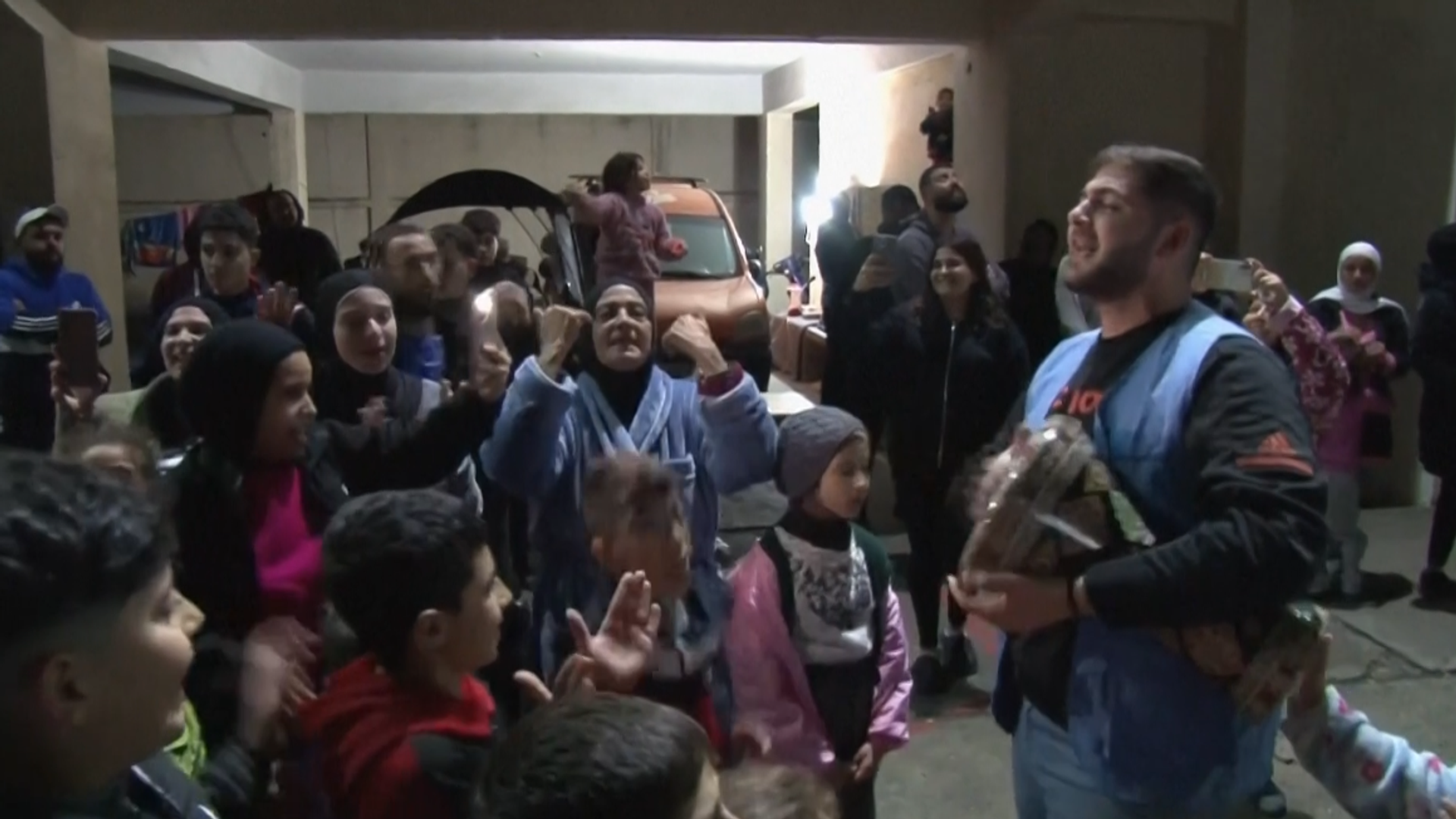A ceasefire between Israel and Hezbollah has begun.
Commencing at 2am UK time (4am local time) on Wednesday, the deal marks a notable step forward in diplomatic efforts in the region.
Previously such talks had floundered and failed to produce results – until this week.
Read more:
Analysis: Dark clouds hang over Middle East
Explained: Israel-Hezbollah ceasefire
The deal, brokered by the US and France, was announced by President Joe Biden and will see an initial 60-day halt to the fighting that has claimed thousands of Lebanese lives and displaced over a million people.
It will also allow tens of thousands of people both sides of the border to return home.
Israel will gradually withdraw its forces from Lebanon as the Iranian-backed militant group Hezbollah leaves its positions in the region, and retreats north of the Litani River – which runs around 30km (20miles) north of the border.
Hamas ready for Gaza ceasefire ‘immediately’ – but claims Israel has put forward no ‘serious proposals’ in months
Qatar tells Hamas it won’t host group’s political office unless Gaza ceasefire talks with Israel improve
UNRWA: Israel ends agreement with main aid provider in Gaza
The Lebanese army will take control of the territory to ensure Hezbollah doesn’t rebuild infrastructure there, with the country’s foreign minister Abdallah Bou Habib saying it could deploy at least 5,000 troops.
“This is designed to be a permanent cessation of hostilities,” Mr Biden said.
“Civilians on both sides will soon be able to safely return to their communities,” he added.
There appeared to be lingering disagreement over whether Israel would have the right to attack Hezbollah if it believed the militants had broken the agreement.
Prime Minister Benjamin Netanyahu said it was part of the deal but Lebanese and Hezbollah officials reportedly claimed otherwise.
“If Hezbollah breaks the agreement and tries to rearm, we will attack. For every violation, we will attack with might,” Mr Netanyahu said.
Please use Chrome browser for a more accessible video player
Mr Biden said Israel had the right to quickly resume operations if Hezbollah did break the truce.
Within Israel, there was not total support for the ceasefire, with a poll conducted by Israel’s Channel 12 TV finding that 37% of Israelis were in favour of the ceasefire, and 32% against.
In Lebanon, people cheered on the streets as it was confirmed.
Israel bombards Lebanon right until ceasefire deadline
With less than half an hour to go until the ceasefire, Israel was still launching strikes on Beirut.
In the days and hours before, it had unleashed a wave of attacks across Lebanon, killing at least 42 people according to Associated Press.
Explosions lit up Lebanon’s skies in the day before the ceasefire with both Beirut and the port city of Tyre targeted by Israel as its cabinet discussed, and eventually voted for, the peace offer.
Israel also later launched strikes at the north Lebanon crossing with Syria for the first time, according to Lebanon’s transport minister Ali Hamieh.
The most recent deaths mean at least 3,760 people have been killed in Lebanon in the 13 months of fighting between Israel and Hezbollah, which includes the two months since the ground invasion.
What satellite images tell us about North Gaza as report accuses Israel of ‘ethnic cleansing’
Follow our channel and never miss an update
Israel says it has killed more than 2,000 Hezbollah members. Lebanon’s Health Ministry says the war has displaced 1.2 million people.
In Israel, Hezbollah rockets have struck as far south as Tel Aviv and at least 75 people have been killed, more than half of them civilians.
Be the first to get Breaking News
Install the Sky News app for free
But while the ceasefire will end hostilities in Lebanon, worries over the situation in Gaza continued.
Charities have repeated warnings of a humanitarian crisis in parts of the enclave and the United Nations Agency for Palestine Refugees (UNRWA) said that the coming winter would lead to more deaths as well.
Meanwhile, Hamas is still holding dozens of hostages who have spent more than a year captive.







